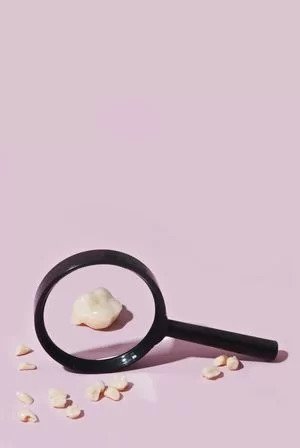Do you consider yourself an expert on electric toothbrushes? The more information you have on toothbrushes, the better. Your dental hygiene practice is essential to sustaining good oral health.
But it won’t help you much if you don’t know how to use the right equipment. Knowing the appropriate practices to maintain your teeth and gums is beneficial. So, now is the time to start making sure you have all the information you need to protect and care for your teeth.
If that’s the case, our team has prepared a toothbrush quiz for you. Try this quiz to discover whether your knowledge is worthy of a “crown.” The answers can be found at the bottom of the page below.
1.When brushing your teeth, how long should you brush them?
A. Three minutes B. One-minute C. two minutes
2.Is it true that chewing gum can help you avoid cavities?
A. Yes B. No C. Maybe
3.Which country invented the very first toothbrush with bristles?
A. The United States B. China C. Denmark
4.When is the right time to get a new toothbrush?
5.What was the first material used to make a toothbrush?
6.To have an efficient brushing session, at what angle should you hold your toothbrush?
A. 45 degrees B. 90 degrees C. 100 degrees
7.Regular drinks cause tooth decay, while diet sodas do not.
A. True B. False C. Perhaps
8.Adults have how many teeth?
A. 35 B. 32 C. 30
9.The toughest material in the human body is dental enamel.
A. True B. False C. Perhaps
10.Is it true that electric toothbrushes outperform manual toothbrushes?
11.Too much brushing can hurt your gums.
A. True B. False C. Perhaps
12.What is the ideal toothbrush to use: soft bristles or hard bristles?
A. Soft bristles B. Hard bristles C. both
13.Toothbrush was voted the most important innovation that Americans could not survive without.
A. True B. False C. Undecided
14.How did ancient humans brush their teeth?
15.Daily, how much saliva does the typical individual produce?
A. 2-4 pints B. 5–7 pints C. 7–10 pints
16.What is a low-strength liner that preserves the pulp, has a therapeutic impact on a tooth, lowers sensitivity after the restoration is finished, encourages secondary dentin formation, and has antimicrobial properties?
A.ZOE Reinforced B. Glass Ionomer C. Calcium Hydroxide
17.What are dental caries, often known as cavities, and how can you prevent them?
A. Bacterial decay causes an infectious condition that affects the tooth structure.
B. A hole in the tooth that occurs spontaneously.
C. A tooth may be damaged as a result of an infection or an incident.
18.What does the word “gingivitis” mean?
A. Inflammation of the tongue
B. Inflammation of the gums
C. The impaction of a tooth
19.For people with arthritis or other disorders that make it difficult to operate a toothbrush, electric toothbrushes are a suitable alternative.
A.Yes B. No C. Maybe
20.You should consult your dentist if you detect white or red areas on your gums or tongue.
A.Yes B. No C. Maybe
Check your quiz results here
If you don’t use your dental insurance, you’re not only wasting money, but you’re also putting your teeth at risk. Remember to visit the dentist at least twice a year. They can keep track of your oral health and devise a strategy to resolve any concerns or concerns.
Please contact our office if you still have any questions or would want to learn more about electric toothbrushes. Our dental staff is willing to assist you in any manner possible.
Also, please let us know how you did in the comments or on social networking sites. See you!
Answers:
1. C
2. If the gum is sugar-free, yes. Chewing gum improves saliva flow, which aids in cavity prevention.
3. B
4. It’s advisable to change your toothbrush every three to four months, or when the bristles are ragged and worn out.
5. The first toothbrush was made by using bone, or bamboo handles and embedding hog hair into ivory.
6. A
7. B
8. B
9. A
10. Both electric and manual toothbrushes are quite effective, and the choice between the two comes down to personal preference. You should, however, use an electric toothbrush if it inspires you to brush.
11. B. (However, brushing the wrong way can.)
12. A: (Unless your dentist advises otherwise. )
13. A: The toothbrush is perhaps the most significant tool and item in the United States. It even outperforms automobiles and computers.
14. To clean their teeth, several tribes chewed on tree bark or sticks. According to the History Channel, ancient people used powdered eggshells and oxen hoofs to cleanse their teeth.
15. A: In a lifetime, you’ll fill around 53 bathtubs. Saliva is made up of electrolytes, mucus, antimicrobial chemicals, and digestive enzymes. For individuals with cavities, there’s also mutans streptococcus.)
16. C
17. A
18. B
19. A
20. A
